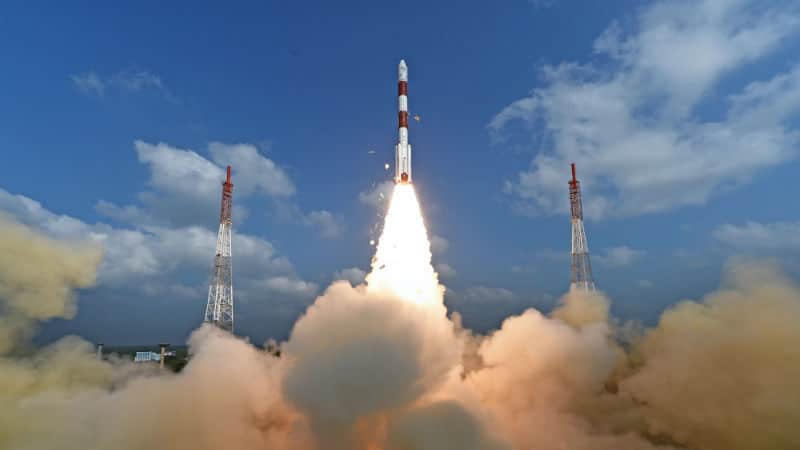The Indian Space Research Organization (ISRO) created history on February 15, 2017 at exactly 9:28 AM IST (Tuesday, 10:58 PM, ET) when it successfully launched a record 104 satellites from a single rocket from the Satish Dhawan Space Center in Sriharikota, in the southeastern state of Andhra Pradesh. It was the 39th successful mission of the space agency’s Polar Satellite Launch Vehicle PSLV –C37 (weighing 320 tons at lift-off, with a height of 44.4 meters), which carried a payload of satellites from seven different countries.
Just before the launch, ISRO’s Ajay Lele said: ‘This is a significant step for India. This entire launch will last for 28 minutes…It is a four stage mission. The first satellite will go in the 17th minute followed soon by two nano satellites by India. Later 96 satellites will be placed in their orbits’.
Following are all the details about the latest milestone achieved by ISRO, which has moved from one success (for instance, its test of an indigenous cryogenic engine in September 2016) to another in a very short span of time:
- ISRO’s launch broke the record held by Russia for the maximum number of satellites placed into orbit through a single rocket. In 2014, Russia launched 37 nano satellites at one go, using a modified inter-continental ballistic missile. ISRO itself had accomplished a similar feat in June 2015, when it put 23 satellites in space.
- Of the 104 satellites launched, 96 belonged to the USA while five others were from Israel, Kazakhstan, the Netherlands, Switzerland and the UAE. The remaining three were Indian satellites. India’s high resolution CARTOSAT-2 Series satellite, weighing 714 kg and build for earth observation (in less subtler terms-to keep a bird’s eye view on its hostile neighbors Pakistan and China) was the main cargo, followed by other 103 co-passenger nano satellites (weighing a total of 664 kg), launched into the polar Sun Synchronous Orbit, around 520 km away from the earth.
- Apart from the CARTOSAT-2, the two Indian nano-satellites are the INS-1A and INS-1B, carrying four different payloads from the space agency’s Space Applications Centre (SAC) and Laboratory for Electro Optics Systems (LEOS) of ISRO to carry out various experiments. The payload of the INS-1A is the Surface Bidirectional Reflectance Distribution Function Radiometer and that of INS-1B is the Earth Exosphere Lyman Alpha Analyser.
- All 104 satellites were released into space in a matter of 18 minutes, at a speed of more than 27,000 km/hr.
- The primary satellite, CARTOSAT-2 series, once operational, will provide remote sensing services. It will send images that will help in tracking activity of hostile nations, as well as for coastal land use and regulation, monitoring road networks, distribution of water, creating land use maps etc. It has a mission life of five years.
- The nano-satellites belonging to international customers were launched under an arrangement by Antrix Corporation, ISRO’s commercial arm.
- Why is this milestone such a big deal? Telecom and internet companies around the world, as well as different governments of countries are looking to establish advanced communications infrastructure. Fierce competition and growing commercialization in the space sector, led by companies like Elon Musk’s SpaceX and Jeff Bezos’ Blue Origin has made cost-effectiveness a big factor while launching satellites. Compare this- ISRO successfully sent an unmanned rocket to orbit Mars at a price of $ 73 million, while NASA’s Maven Mars mission cost a staggering 671 million. The Indian space agency has been able to significantly cut down costs compared to its competitors, making it a strong contender for global satellite launches.
- What next? ISRO reportedly has ambitious plans to send missions to Jupiter and Venus also. A second mission to Mars is scheduled for 2021-2022 and it may involve putting a robot on the red planet’s surface, just like the Mars rover.














Leave a Reply